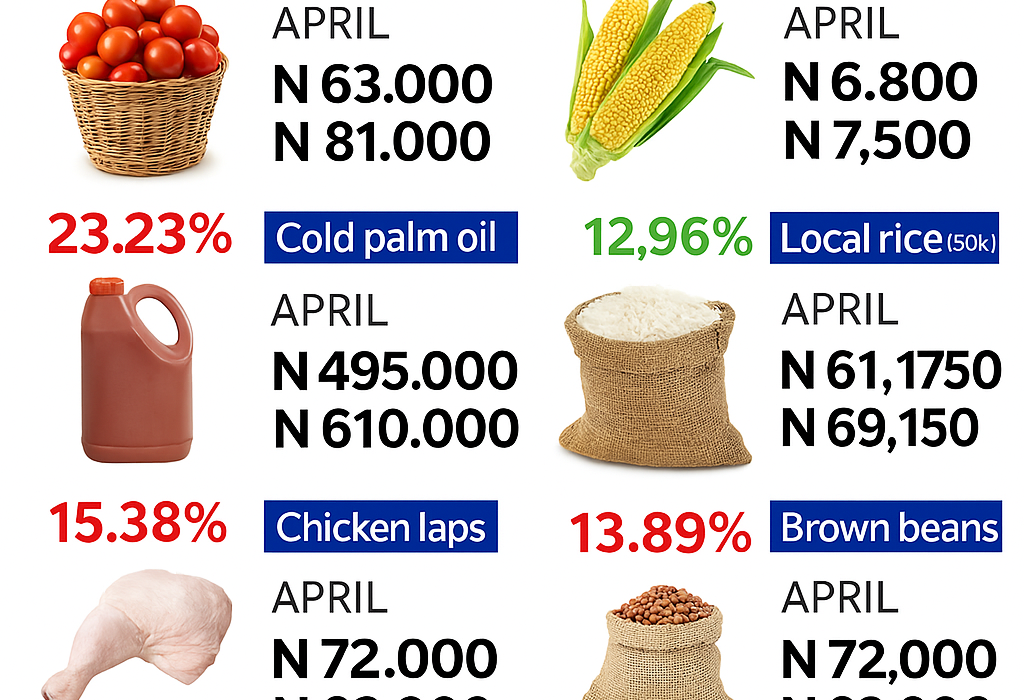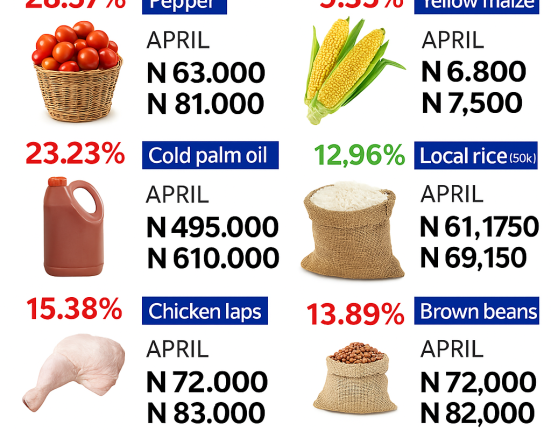Lagos, Nigeria – June 4, 2025
The latest Nairalytics Food Price Survey conducted in selected markets across Lagos has revealed a sharp increase in the prices of several essential food commodities between April and May 2025. The report highlights a significant inflationary trend in food items, with tomatoes, pepper, and palm oil experiencing the steepest monthly surges.
According to the survey:
A big basket of round-shaped tomatoes saw the highest increase, soaring by 30.73% from ₦44,750 in April to ₦58,500 in May.
The price of a big bag of pepper rose by 28.57%, jumping from ₦140,000 to ₦180,000.
Local palm oil (25 litres) recorded a 23.23% increase, moving from ₦49,500 in April to ₦61,000 in May.
Chicken laps (carton) climbed by 15.38%, reaching ₦60,000, up from ₦52,000.
A 50kg bag of brown beans increased by 13.89%, now selling at ₦82,000, up from ₦72,000.
Meanwhile, a few food items experienced price reductions, easing the pressure on consumers slightly:
Horse mackerel (kote fish) dropped by 14.29%, from ₦7,000 to ₦6,000.
Local rice (50kg) decreased by 12.96%, from ₦61,750 to ₦53,750.
Yellow maize (50kg) fell by 9.33%, from ₦75,000 to ₦68,000.
Semovita (5kg) declined by 7.75%, down to ₦8,625 from ₦9,350.
White garri (50kg) experienced a 5.00% reduction, now at ₦38,000 compared to ₦40,000 in April.
The data underscores the ongoing challenges facing Nigerian households as they grapple with rising inflation, particularly on staple food items critical to daily nutrition.
Analysts attribute the price increases to a combination of factors including logistics constraints, seasonal fluctuations, insecurity in farming regions, and continued volatility in the forex market impacting import-dependent food processing.
With the food inflation crisis deepening, experts are calling on the federal government and state authorities to intensify efforts to stabilize food supply chains, invest in local production, and provide targeted support for vulnerable families.

